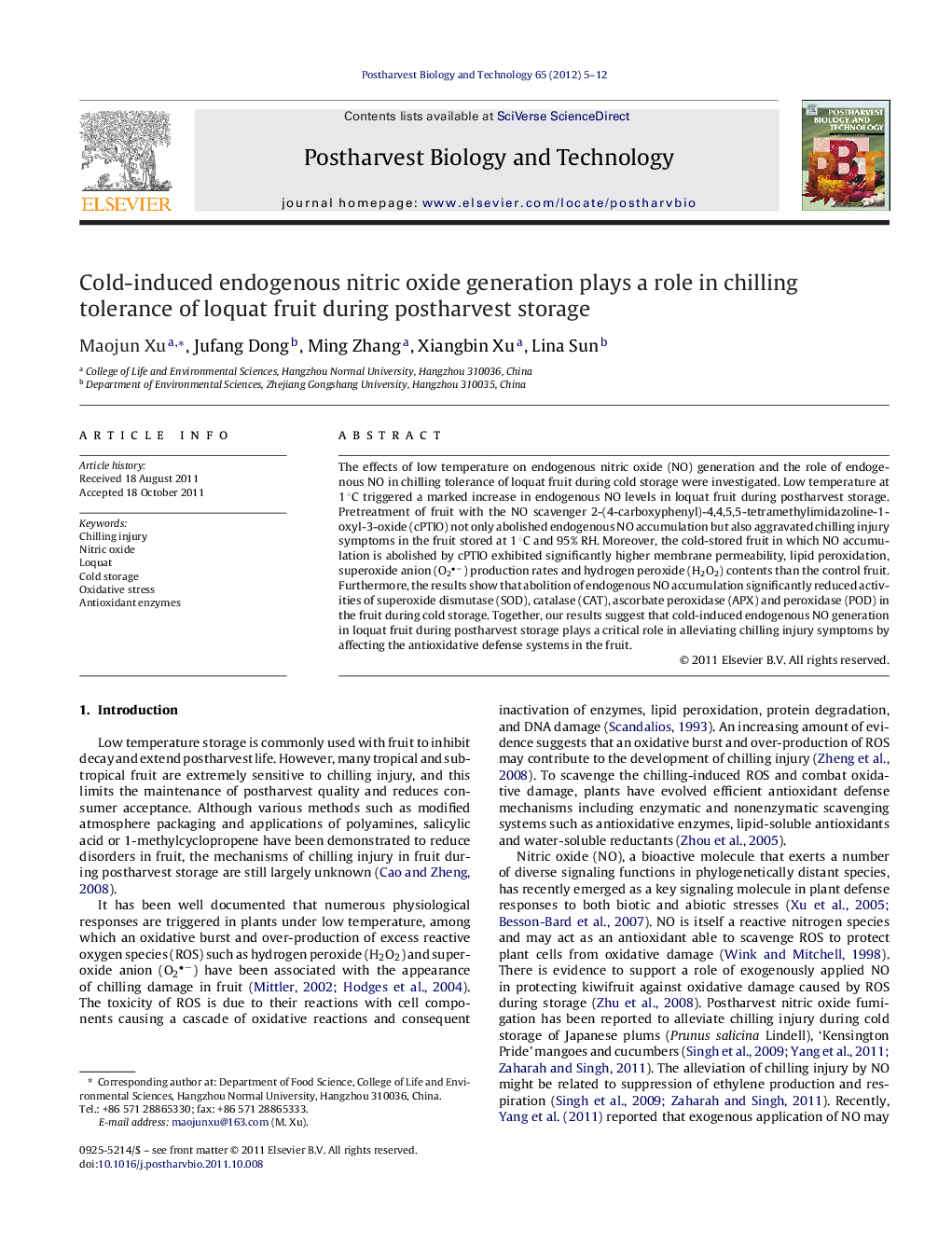| Article ID | Journal | Published Year | Pages | File Type |
|---|---|---|---|---|
| 4518787 | Postharvest Biology and Technology | 2012 | 8 Pages |
The effects of low temperature on endogenous nitric oxide (NO) generation and the role of endogenous NO in chilling tolerance of loquat fruit during cold storage were investigated. Low temperature at 1 °C triggered a marked increase in endogenous NO levels in loquat fruit during postharvest storage. Pretreatment of fruit with the NO scavenger 2-(4-carboxyphenyl)-4,4,5,5-tetramethylimidazoline-1-oxyl-3-oxide (cPTIO) not only abolished endogenous NO accumulation but also aggravated chilling injury symptoms in the fruit stored at 1 °C and 95% RH. Moreover, the cold-stored fruit in which NO accumulation is abolished by cPTIO exhibited significantly higher membrane permeability, lipid peroxidation, superoxide anion (O2−) production rates and hydrogen peroxide (H2O2) contents than the control fruit. Furthermore, the results show that abolition of endogenous NO accumulation significantly reduced activities of superoxide dismutase (SOD), catalase (CAT), ascorbate peroxidase (APX) and peroxidase (POD) in the fruit during cold storage. Together, our results suggest that cold-induced endogenous NO generation in loquat fruit during postharvest storage plays a critical role in alleviating chilling injury symptoms by affecting the antioxidative defense systems in the fruit.
► Low temperature at 1 °C triggered a marked increase in NO levels in loquat fruit. ► Inhibition of endogenous NO resulted in aggravation of chilling injury symptoms. ► Antioxidant enzyme activities were significantly reduced when NO was reduced. ► Reduction in endogenous NO enhanced ROS, MDA and ion leakage in loquat fruit. ► NO played a role in chilling tolerance by affecting antioxidative defense systems.
